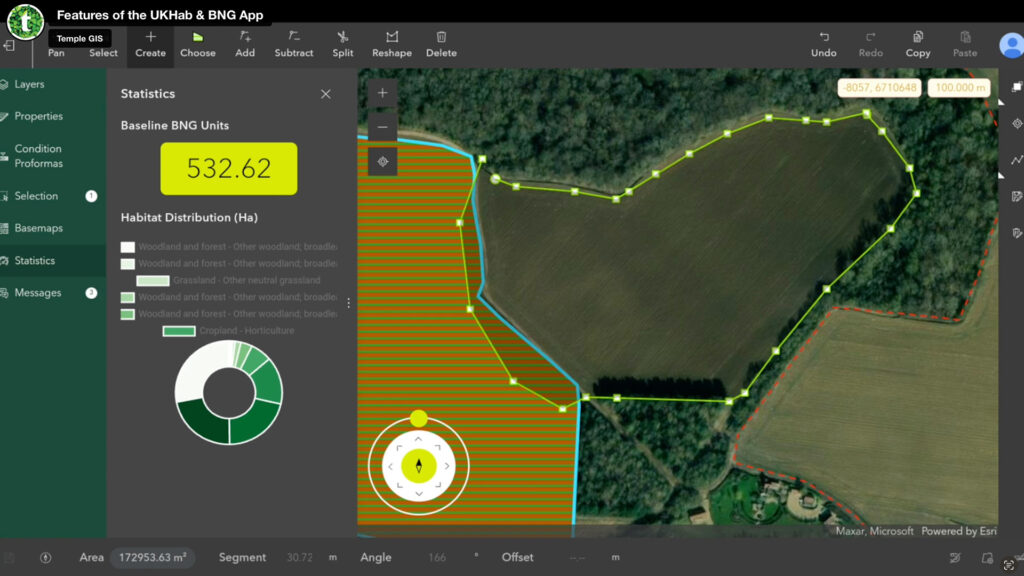Streamlined workflow, powered by Esri GIS technology, helps AEC firms meet new legislation
Temple, a UK environment, planning and sustainability consultancy, has launched a new application to help AEC firms make decisions on development plans and meet the new biodiversity net gain (BNG) legislation.
The legislation, which came into force in February 2024, demands that all new construction projects deliver at least 110% of the biodiversity value found on a site prior to its development.
Temple, a recently appointed Esri UK silver partner, developed the UKHab and BNG Survey App using Esri’s GIS (Geographic Information System) technology. Designed to simplify the processes involved in BNG assessments, the software is said to streamline the workflow from field data collection to in-office assessment and provide a real time BNG score.
The app also enables the ‘seamless use’ of existing UKHab surveys and conversion to BNG surveys. According to Esri UK, this means many users can take advantage of their current ecological processes and comply with the new legislation faster and more cost effectively.
Additional functionality will soon include scenario modelling, to make the comparison of potential designs more accessible and financial differences more quantifiable. Future plans include applications aimed at specific sectors and their roles in BNG, including rural landowners, local government planning authorities and land developers.
“By combining our vast experience in ecology, environmental impact assessments and wider scientific understanding with established Esri tools, new digital workflows mean users can now manage a project’s impact on the landscape and comply with the new law in a highly accurate and efficient way,” said Mark Skelton, CEO at Temple.
Temple specialises in providing environment, ecology, planning and sustainability consultancy services on infrastructure projects across the UK. Customers include Network Rail, Transport for London, and the Government of Jersey.






